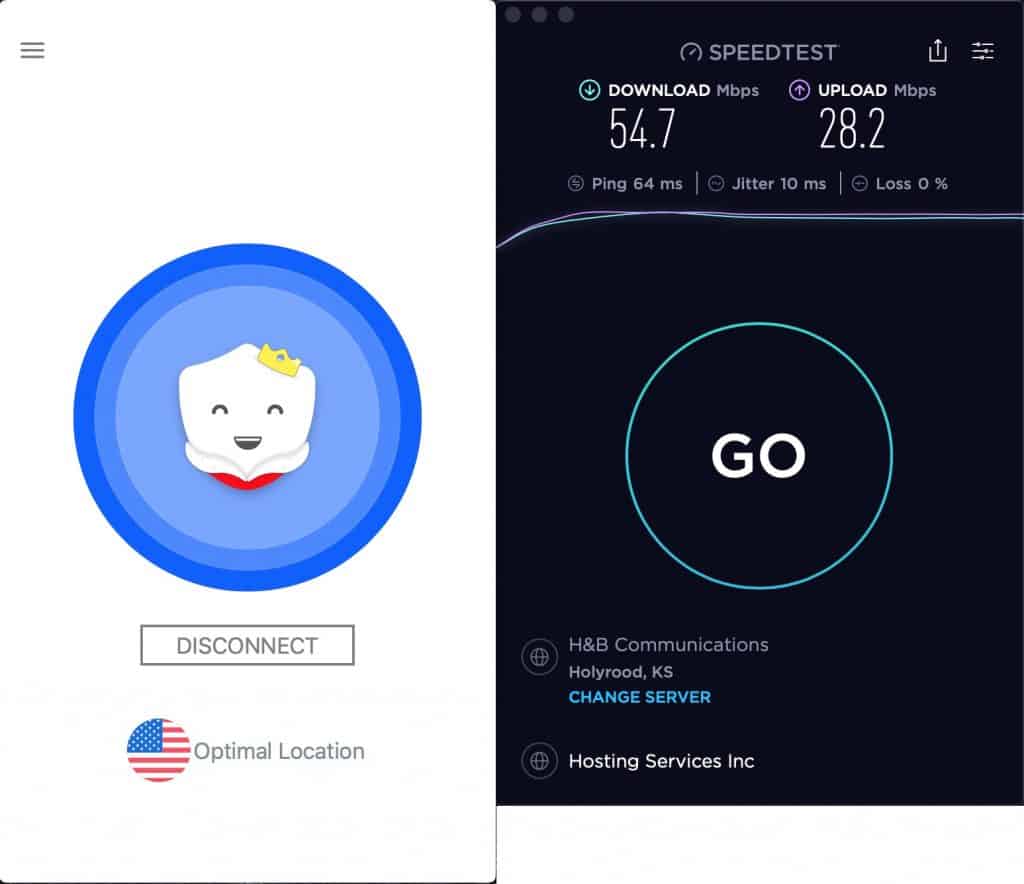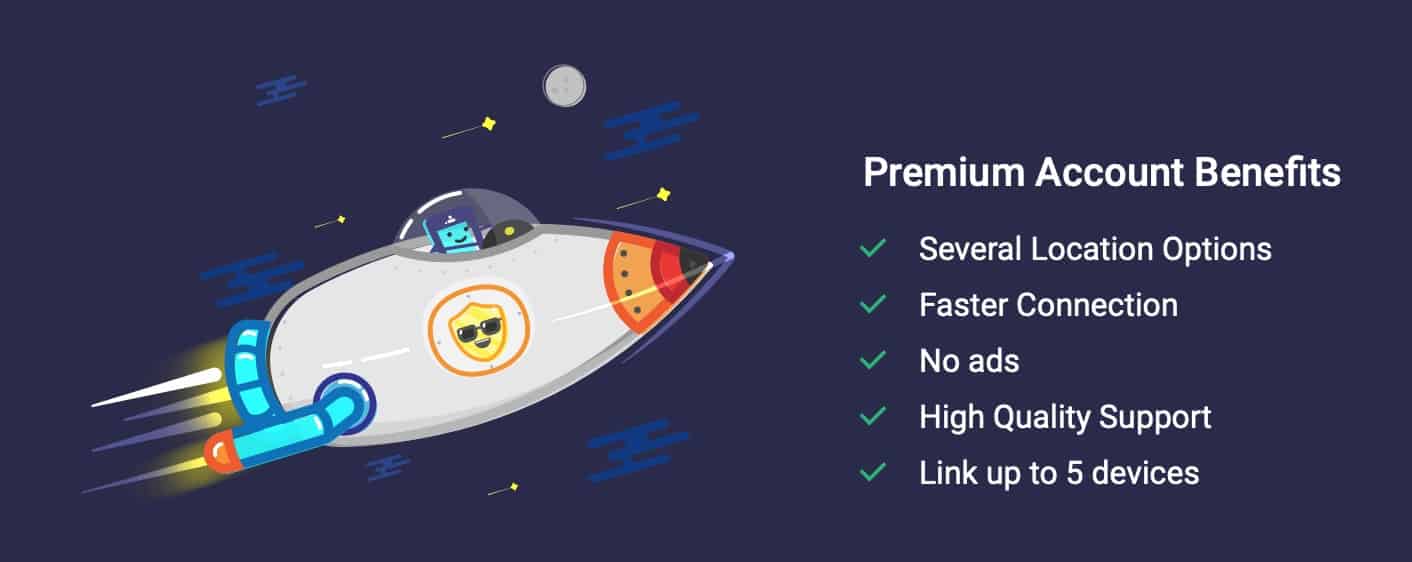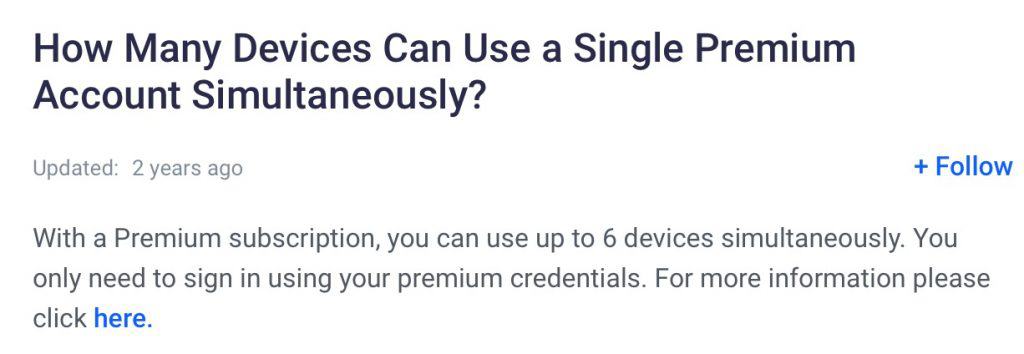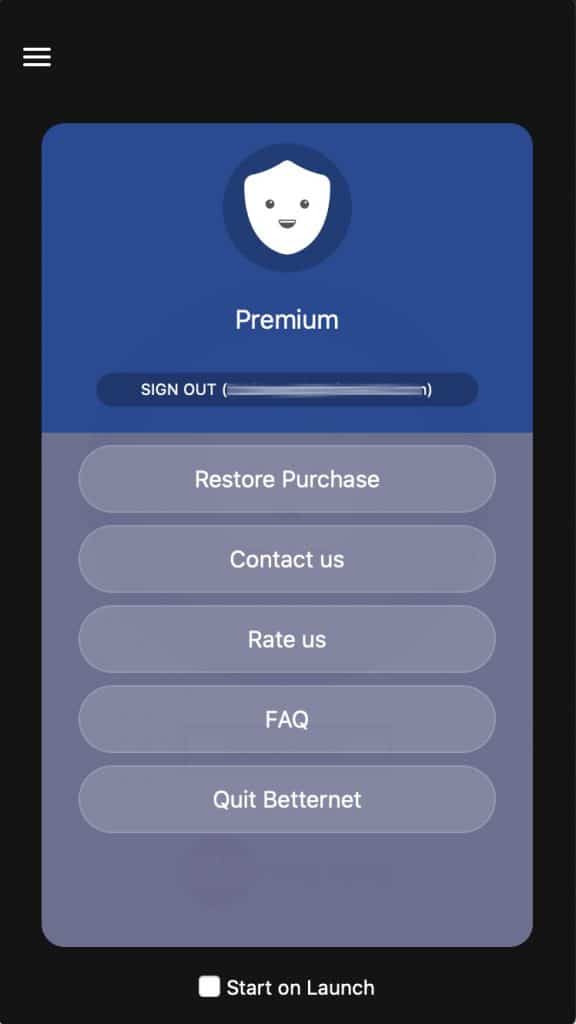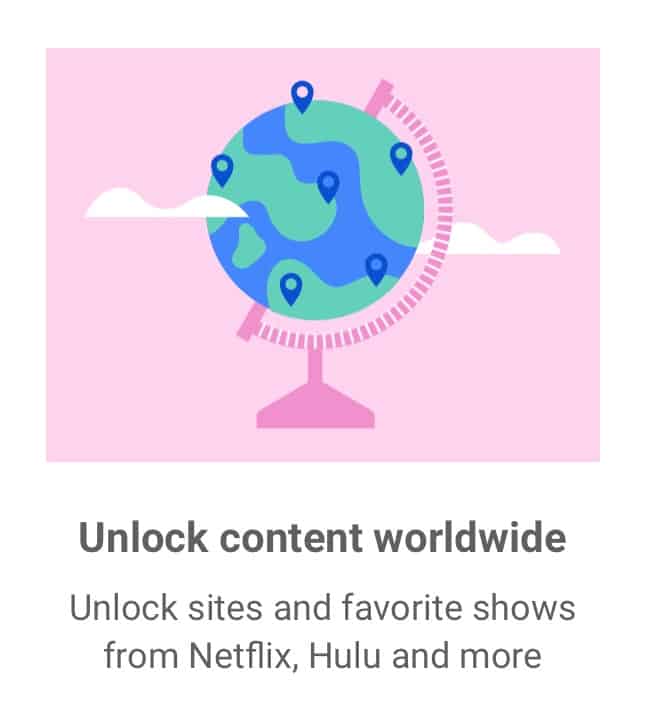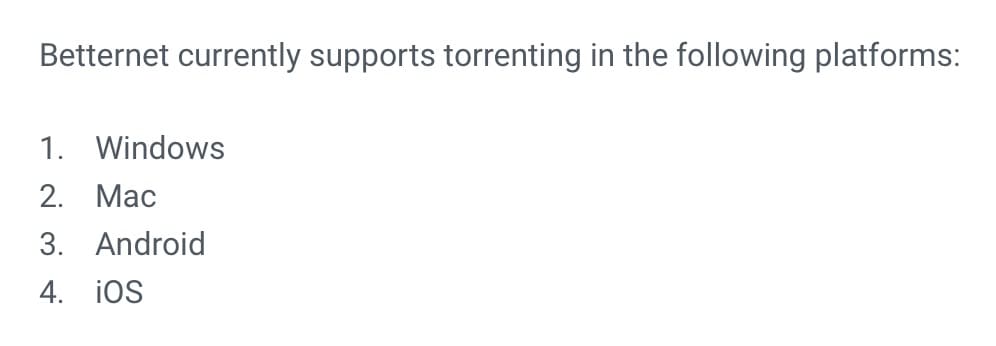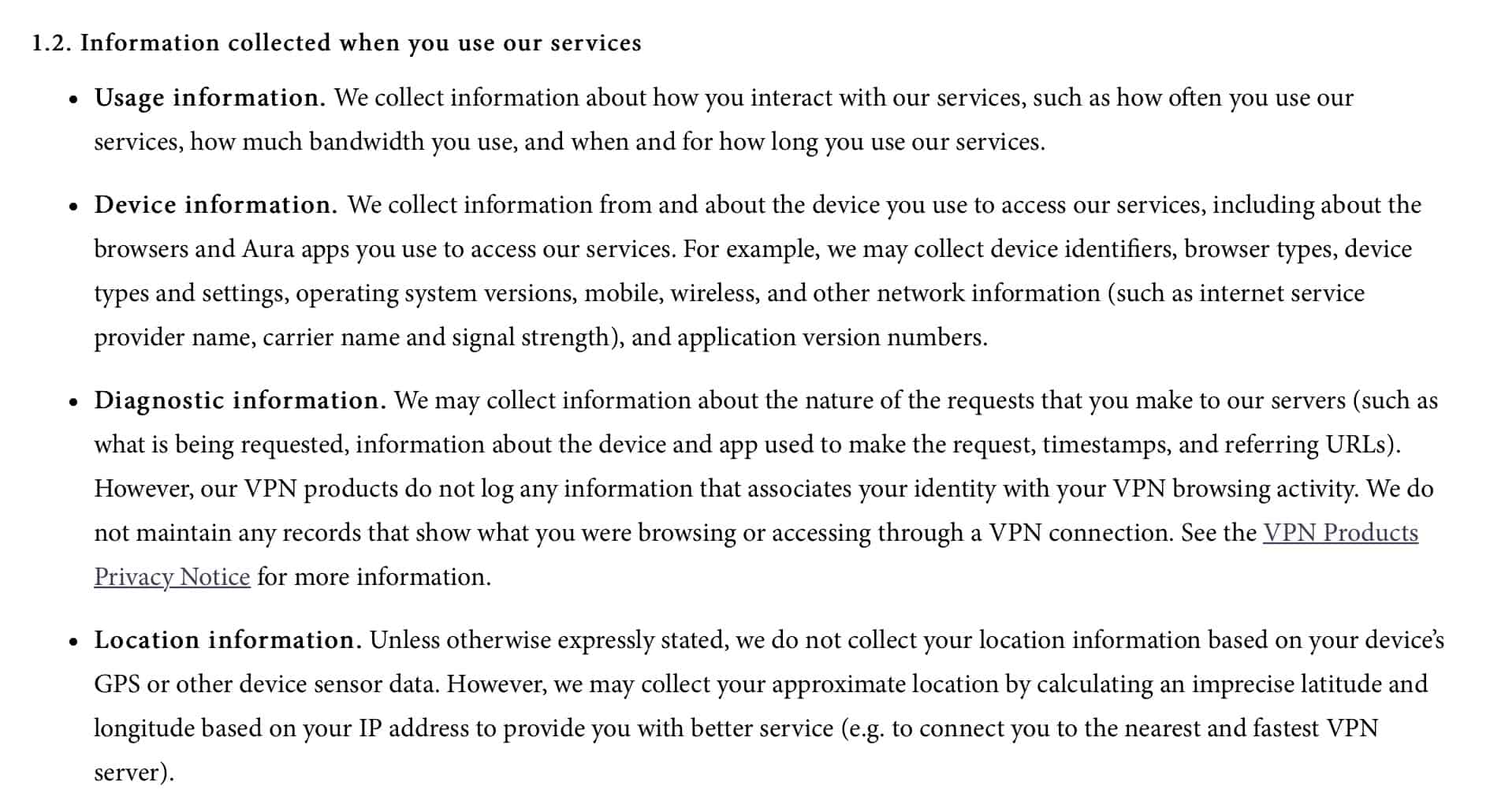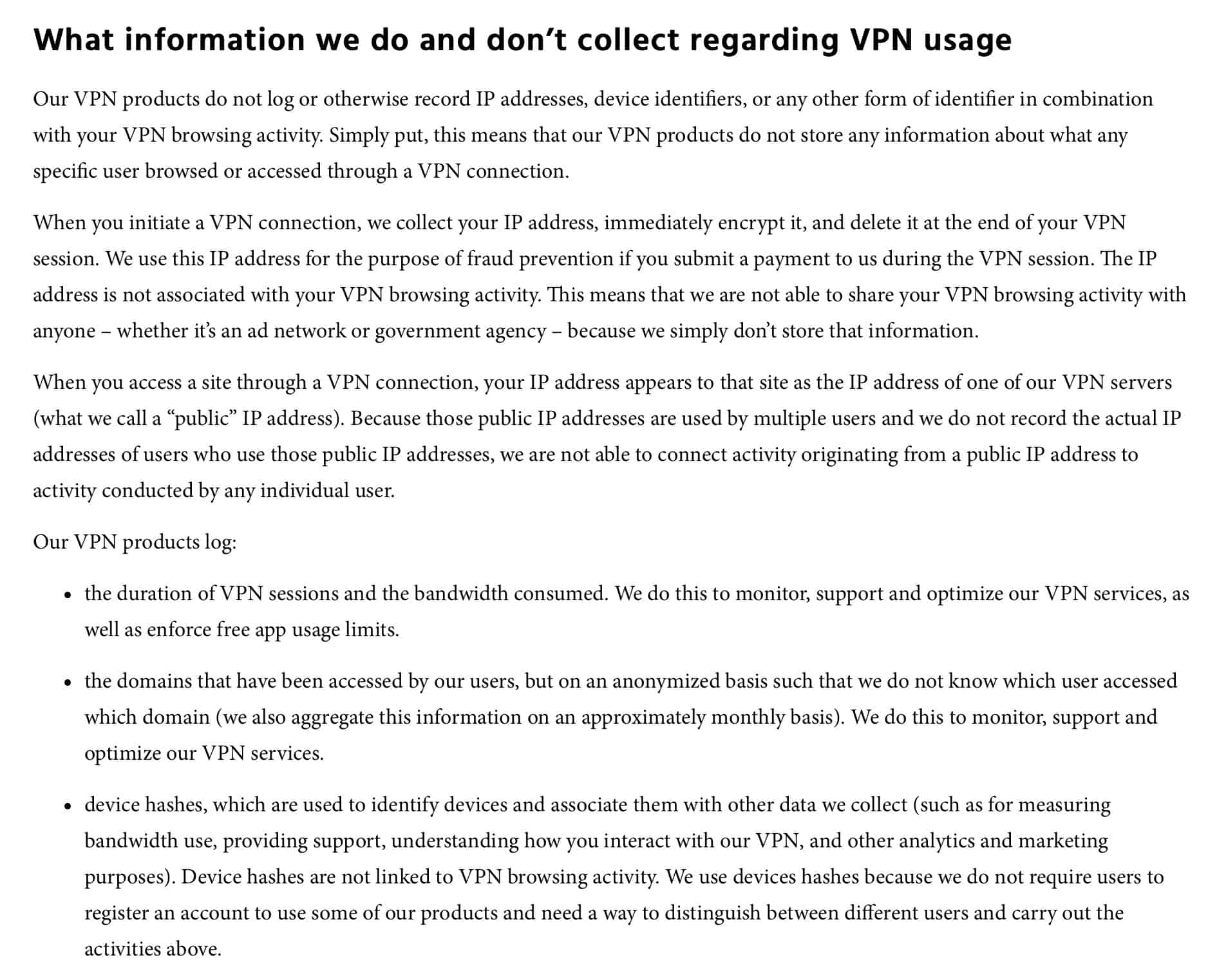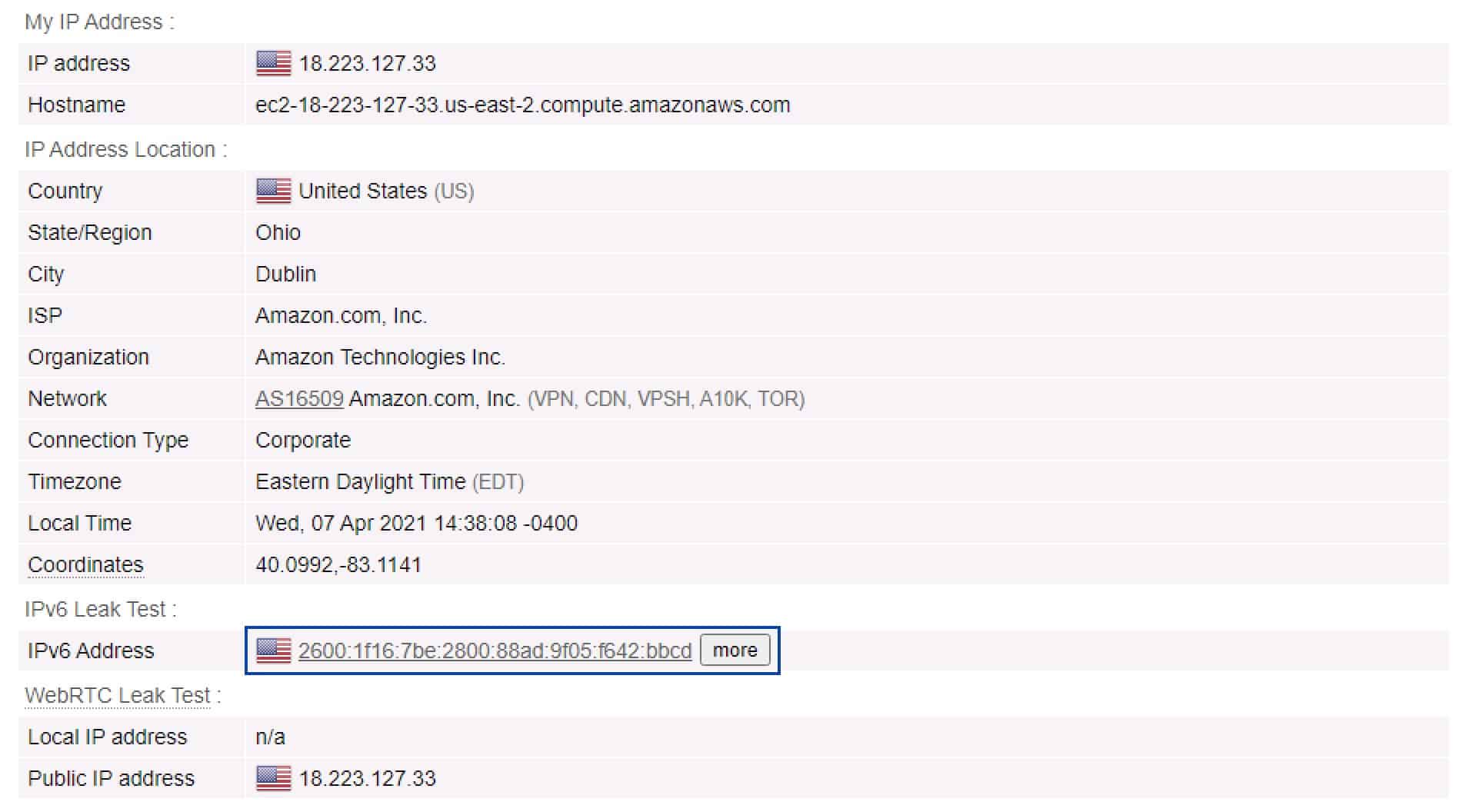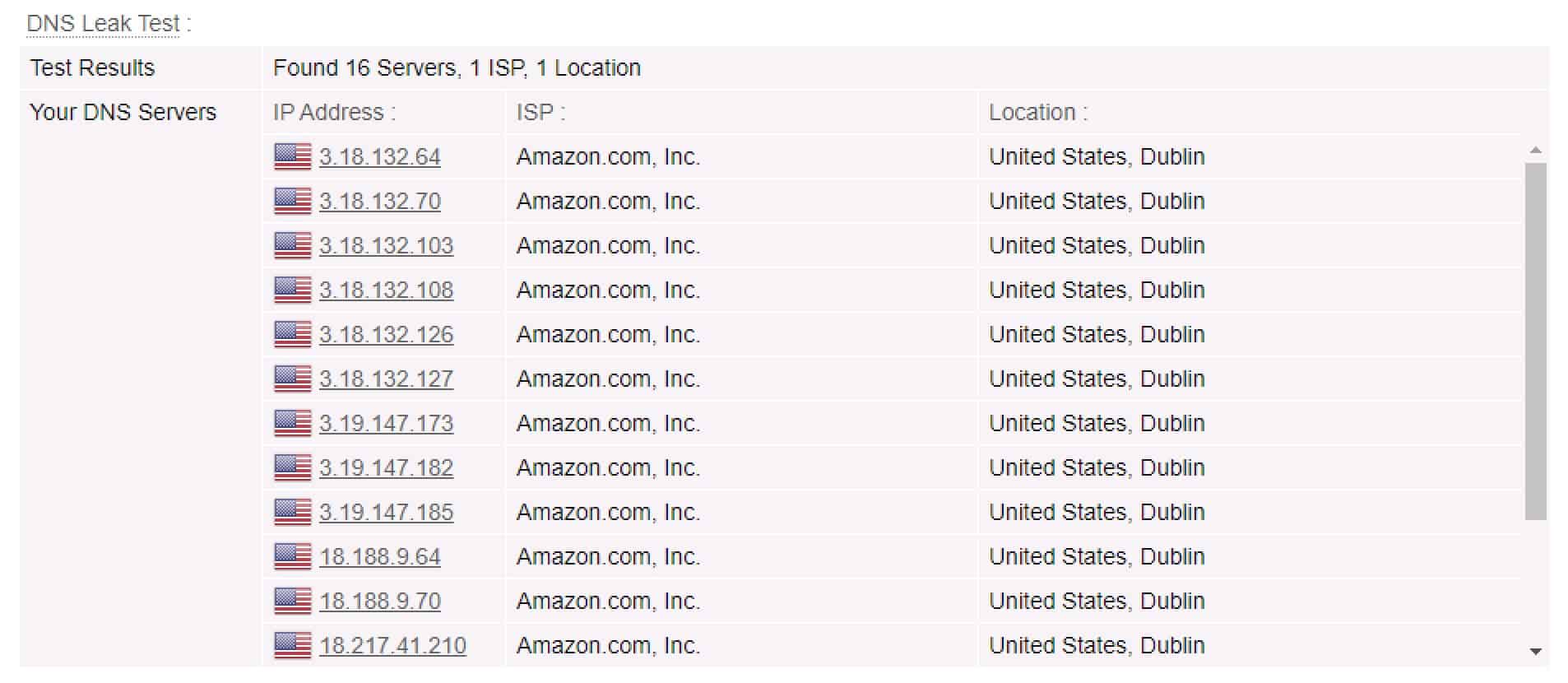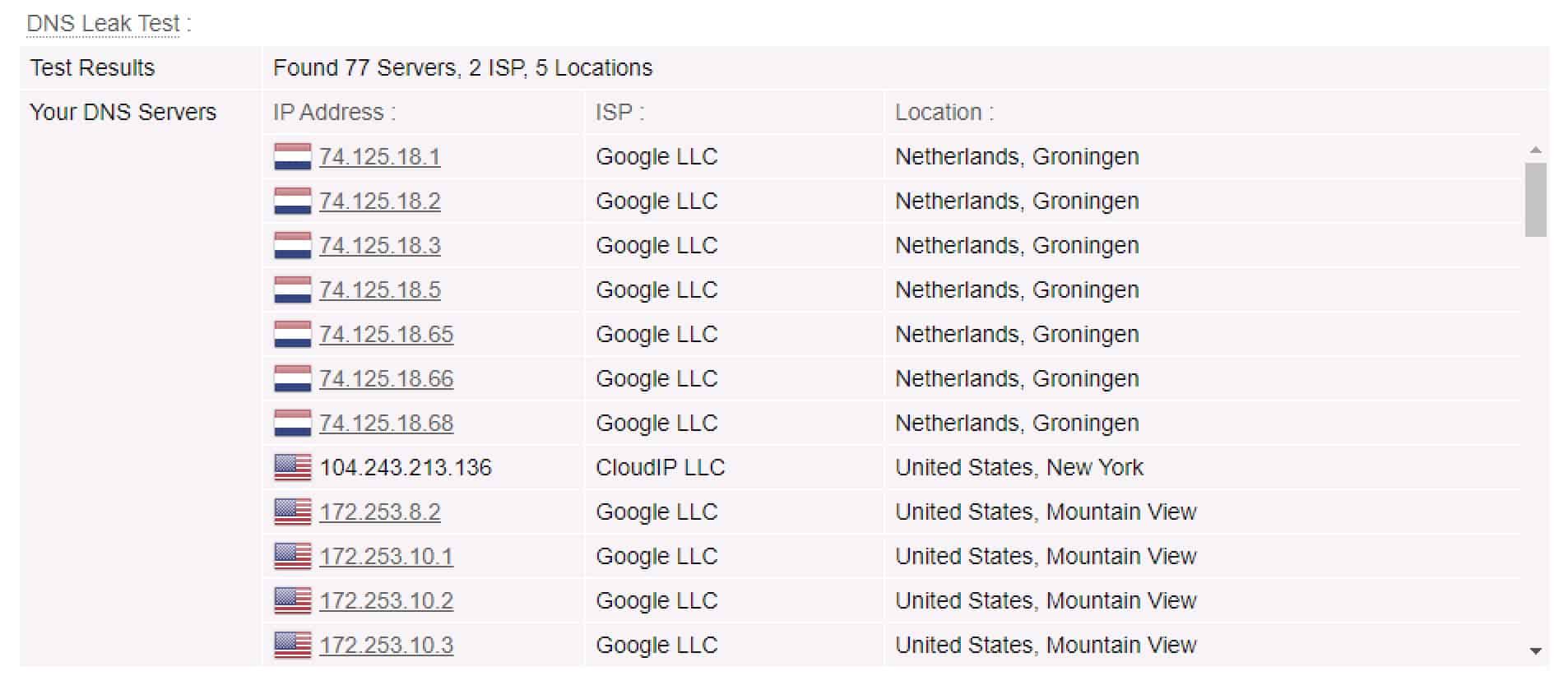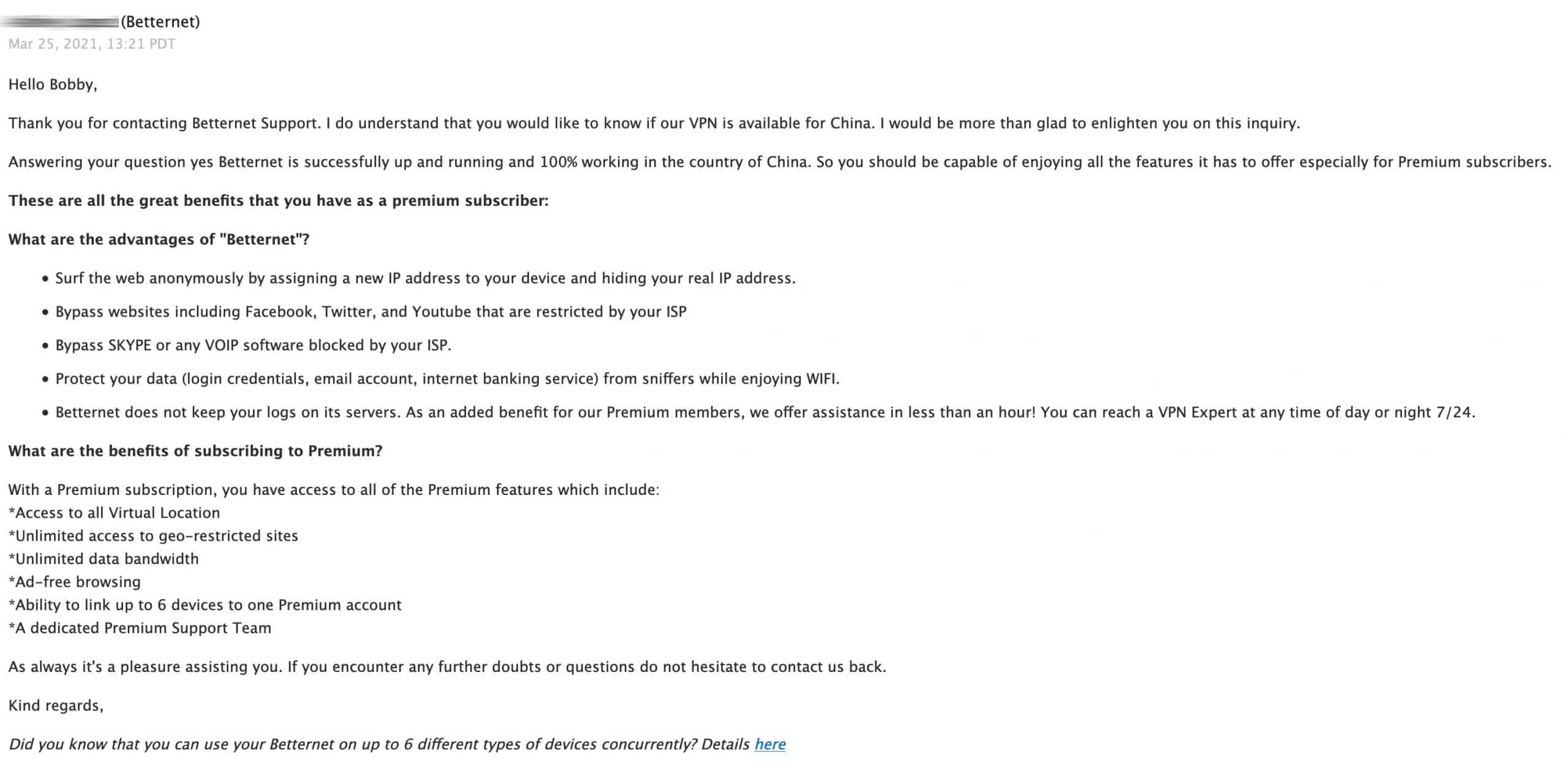
It’s not like there isn’t any competition in the commercial VPN space. And finding a good quality, trustworthy VPN provider isn’t all that difficult. The big-name VPNs usually deserve their status. So can a smaller player, like Betternet, hold its own? That’s what we’re going to look at.
Here are some of the questions I’m going to answer in this Betternet review:
- How fast is Betternet?
- Does Betternet work with streaming sites, such as Netflix, Amazon Prime Video, and BBC iPlayer?
- What are Betternet’s privacy practices like?
- What kind of encryption does Betternet use?
- Does Betternet work in China?
We’ll answer all of those questions and more in this review. Also, we’re reviewing the premium service that comes with a paid subscription. But we’ll also talk about its free tier. If you don’t have a lot of time, you can read a summary of my thoughts below.
Betternet Summary
Betternet uses the same privacy policy as the other Aura-owned providers. And it also uses the homegrown Catapult Hydra VPN protocol. It’s based on OpenVPN, but Aura has made some tweaks to allegedly make it faster and more resistant to censorship.
Those are big goals and we would usually recommend that you should avoid homegrown, cloud-sourced encryption. We also have to add to that the fact that Betternet is vulnerable to IPv6 leaks. Unfortunately, Betternet was unable to work with any streaming sites. And so it appears to fall short on the two main reasons people use VPNs today: privacy & security and unrestricted access to streaming services.
On other fronts, Betternet’s speeds were rather good. And torrenting is allowed. However, there are no features to speak of, really (not even a kill switch). Its website is one of the most uninformative websites I’ve seen for a VPN provider, and the service doesn’t work in China.
Betternet key data
| OVERALL RANK: #56 of 62 VPNs | |
|---|---|
| Speed | |
| Average Speed*: | 52 Mbps |
| Video Streaming Support: | 4K UHD |
| Streaming | |
| Netflix: | No |
| Other Streaming Services: | No |
| Security | |
| Encryption Type: | 128-bit AES |
| Kill Switch: | No |
| Log Policy: | Logs a lot of data |
| Protocols: | Catapult Hydra |
| Value for Money | |
| Lowest Monthly Cost: | $7.99 |
| Money Back Guarantee: | No, but offers free tier |
| Website | https://www.betternet.co |
How does Betternet compare to other popular VPNs?
Here’s how Betternet compares vs ExpressVPN and NordVPN.
| No value | Betternet | ExpressVPN | NordVPN |
| Website | betternet.co/ | ExpressVPN.com | NordVPN.com | Average Speed (Mbps) | 52 Mbps | 300 Mbps | 300 Mbps | OpenVPN data encryption | AES-256 | 256-bit AES | 256-bit AES | Kill Switch | Desktop only | Allows Torrenting | Connection logs | Some aggregated data | Some aggregated data | Unblocks Netflix US | Unblocks Prime Video | Unblocks Hulu | Unblocks BBC iPlayer | Lowest monthly cost | $7.99 per month | $4.99 | $3.39 | Money back guarantee | 45 days | 30 days | 30 days | Overall rating | 2 | 9.3 | 9.7 |
|---|---|---|---|
| Best deal (per month) | $7.99 Get 39% off a 12 month plan | $4.99 SAVE: 61% + 4 months free on 2 year plans | $3.39 Up to 76% off 2 year plans + free eSIM data |
Betternet Pros and Cons
Pros:
- Decent speeds
- Offers a free (limited) tier
- May work in China
Cons:
- Uses homegrown VPN protocols
- Collects a lot of user data
- Vulnerable to IPv6 leaks
- No kill switch
- No features beyond the VPN itself
- Unable to work with any streaming sites
- Prices are high
Speed: How fast is Betternet?
Speed will always be an essential factor to consider in choosing a VPN provider. Nobody wants to pay for a high-speed connection only to have it bogged down by their VPN.
Betternet’s speed average, across all locations and times tested, comes to 52 Mbps download speed.
The tests were conducted over servers located in North America, Europe, and Asia. And there is a speed hit, of course. But unless you have a moderately fast connection, you shouldn’t feel it too much. If you have a high-speed connection, you’ll feel the hit when downloading large files, for example.
Here is a breakdown of the average speed per region:
- North America (where I’m located): 64 Mbps
- Asia: 43 Mbps
- Europe 51 Mbps
All the tests were conducted using the Catapult Hydra protocol – Aura’s modified OpenVPN protocol. Betternet, along with all the other Aura-owned VPN providers, makes big claims about the protocol’s speed. While I wouldn’t call it slow, but I can’t say the speeds blew me away. However, what did impress me was the speeds I was getting from faraway servers, like Hong Kong. Betternet was faster than others when speed testing servers that are a great distance from my actual physical location. This is likely due to using Catapult Hydra.
Betternet doesn’t support routers, so to test the service with online gaming, I had to share the connection from my computer to my gaming console. It worked well, and the gaming experience was just fine. I connected to a nearby server to get low ping times, and everything just worked. I didn’t feel the VPN and didn’t run into any lags or disconnects.
See also: Fastest VPNs
Betternet Apps & devices
Betternet provides native apps for the following platforms:
- macOS
- Windows
- iOS
- Android
- Chrome (browser extension)
That covers the basics. But it would have been nice to see Linux and routers in that list. At the same time, I don’t believe that a VPN user with the technical knowledge it takes to use Linux or configure a VPN connection on a router would be very interested in Betternet’s offering. Perhaps Betternet is aware of this and decided it wasn’t worth the effort. And maybe it’s right.
Betternet allows you to connect up to five… or six devices simultaneously on the same subscription. I say five or six because it depends on where you look. On Betternet’s website, its marketing says five:
But its FAQ says six:
The app itself is going to be easy to use even for the greenest of users because there is nothing to configure in the app. Aside from enabling a setting to connect to a server when you launch the app automatically, there are literally no settings to configure.
Again, the positive side is that there is no learning curve to start using the app. The negative side is that, well… there are no features whatsoever. And Betternet’s asking prices are relatively high for what it gives you.
Streaming & Netflix with Betternet
Looking at Betternet’s marketing, you could be forgiven in thinking that you’d be able to access streaming sites over its servers. But no.
I wasn’t able to access any of the streaming sites I tried. That includes Netflix, Hulu, Disney+, Amazon Prime Video, and BBC iPlayer. None of them worked.
And it’s too bad because streaming could have been a redeeming factor for Betternet. It used to be that VPNs were a niche product for the “paranoid.” But not anymore. VPNs are more popular today than ever before. And one of the main drivers of that growth is the ability to access streaming sites. Unfortunately, with Betternet, you can’t access streaming sites.
Here are our recommended VPNs for streaming if you’re looking for more information on that topic.
Does Betternet allow torrenting?
Yes, it does. But unless you troll through the support section of its website, you wouldn’t know. And apparently, users of the Chrome extension are barred from torrenting.
Torrenting is allowed on all servers with Betternet. There are no hoops to jump through. There’s no list of dedicated servers to find. Simply connect to the VPN server of your choice, launch your torrent client, and start file-sharing.
In my tests, torrenting worked as expected. There were times when my download speed would stall at zero for a few minutes before taking up again. But it’s difficult to find the culprit in that scenario, so I won’t put the blame on Betternet. All in all, torrenting over Betternet’s network was just fine.
If you’re big on torrenting, you can check out our recommended VPNs for torrenting.
Does Betternet support split tunneling?
Nope.
Split tunneling, or selective routing, enables you to choose where you route your traffic. You can route through the VPN or through your default ISP connection, typically on an app-by-app basis. So you could choose to send your Netflix traffic through your ISP connection and send the rest out the VPN. Or, you could choose only to send your P2P traffic through the VPN and send the rest through your ISP. It’s become a very popular feature among VPN providers today. Unfortunately, Betternet does not support split tunneling.
Have a look at our recommended VPNs for split tunneling if it’s an important feature to you.
Betternet Security, privacy, and logging
Every VPN provider out there will make big claims about its security and privacy. But the devil is in the details. Clicking on its privacy policy link takes us to the Aura general privacy policy. In there, we find this:
Clicking the provided VPN Products Privacy Notice, we’re shown the following:
So neither of these makes me particularly confident that my data is secure when using Betternet’s service. Let’s just break down what’s collected here for the sake of clarity.
Here is a list of the data that Betternet collects:
- Incoming IP address (encrypted by Betternet and deleted at the end of your session)
- Duration of your VPN session
- Consumed bandwidth
- The domains you access while using the service (!)
- Device information and hashes
- Location data
As far as the protocols and the encryption used, as I mentioned before, Betternet uses the homegrown Catapult Hydra protocol. Hydra is a modified version of OpenVPN. The encryption it uses is AES-128 bit, with 2048 DHE-RSA keys. But because the protocol is proprietary, it cannot be peer-reviewed by security researchers. There’s a reason trusted protocols tend to be open-source: Only open-source tech can be publicly audited. Using a proprietary protocol is a security risk in itself.
Moving on to IP and DNS leaks, I can’t say I was surprised to see that Betternet was leaking IPv6 addresses in my tests.
IP Test – Without VPN
IP Test – With VPN
A quick test on ipleak.net confirms that IPv6 is indeed leaking over Betternet.
DNS Test – Without VPN
DNS Test – With VPN
Thankfully, I found no DNS leaks.
So it isn’t just Betternet’s privacy policy that can compromise your privacy, but the fact that its VPN leaks IPv6 addresses as well. Not really what you expect from a VPN. A VPN’s primary mission is to hide your actual IP address(es). Failing on that front isn’t great.
Betternet Servers
This is another area where Betternet’s uninformative website won’t help you. Betternet’s website does not provide a server list per se. That’s a rather big omission.
If you go digging through its FAQ page, you’ll find the following question: “What Virtual locations are Offered by Betternet?” The answer lists all of the countries/cities in which Betternet has virtual locations – not servers. The odds of the virtual locations actually being in the stated location are rather low in my book.
Nonetheless, we get a total of 81 countries and 109 cities. But Betternet won’t tell you that. You’ll need to count them manually.
Also, in my testing, many of the listed locations simply would not connect. And I mean many – more than 12 locations simply clocked and failed. Still, if all of the locations worked, a network spanning 81 countries is fine and more than enough for most, in my opinion.
What is Betternet’s customer service like?
Customer service comes in the form of email support with Betternet. And it’s apparently 24/7 for premium members.
I wrote Betternet an email asking if the service works in China because I couldn’t find any information about that on its website. I got my answer in just under two hours – which is very good. And the answer I got was courteous and polite. The representative informed me that, yes, Betternet works in China.
The only downside was the fact that the email I got was plastered with Betternet marketing under the response. But Betternet is hardly alone in this, so I don’t want to single it out.
Does Betternet work in China?
Whether or not Betternet works in China depends on who you ask. As I just mentioned, I wrote to Betternet’s support department to find out, and the response I got was an unequivocal “yes.” However, if you go online and read other Betternet reviews, you’ll find a bunch (if not most) that claim that it doesn’t work in China.
I’m not in China, so I can’t personally verify. However, we have an informative article in which we tests many VPN providers to see if they work in China. Betternet was one of the providers tested, and it did not work.
All that to say that your mileage in China may vary. The linked article above also provides some recommended VPN for China.
Betternet Pricing
Betternet offers three subscriptions: Free, monthly, and yearly.
First, let’s talk about Betternet’s free tier.
You can use Betternet for free. There’s no registration at all. You can simply download the app and start using it. However, the free version only allows you to connect to one US server that Betternet chooses. The connection speed is also slower. And… the free version serves ads – which, in a sense, defeats the purpose of using a VPN. All of the data collection that internet ads perform is really the antithesis of what a VPN is supposed to be. So, you’re free to use Betternet’s free account, but honestly, you’re likely more secure using your ISP’s “raw” connection than a free VPN that will slow down your connection and serve you even more ads than the ones you would normally see.
Moving on to the paid plans, the pricing is as follows:
- Monthly: $17.99
- Yearly: $131.88 – works out to $10.99/month
That’s expensive. Betternet’s yearly plan works out to what many premium VPN providers charge for a single month. And for a provider with literally zero features beyond the VPN itself (and its homegrown protocols). Not sure what the folks at Betternet are thinking.
On the plus side, when signing up for a paid plan, you get a one-week free trial, which you can cancel before the renewal kicks in. That lets you try the service before committing, which is nice.
Do I recommend Betternet?
No, I don’t recommend Betternet for a few reasons.
First off, Betternet is expensive. Really expensive. Buying a yearly subscription will still run you $10.99 per month. And for what exactly? A VPN with zero features can’t unblock streaming sites, and that uses a custom VPN protocol while logging oodles of data. Betternet will even log the domains you access for $10.99 per month. Then there’s the fact that the service also leaks IPv6 addresses to boot.
Another “turn-off,” if you will, is that Betternet has one of the most uninformative websites I’ve seen. Betternet takes uninformative to a new high. There is quite literally no information on Betternet’s service aside from the price, the apps you can download, and a bunch of marketing nonsense. It was very difficult to get the information I was looking for – and in some cases, I just never found it.
Despite all that, it’s a pretty fast VPN service – not one that will blow your socks off, however. And given that the price to pay for those (decent) speeds is to use Betternet’s black-box VPN protocol (and at least $10.99 per month), somehow I doubt it will tempt many VPN enthusiasts.
And when you think of what $10.99 a month can get you in the VPN space, signing up to Betternet just doesn’t make sense.
How does one recommend a VPN provider that logs your browsing history? Sure, Betternet claims this data is anonymized before it’s collected. But we know that de-anonymizing data sets is rather easy.
Any one of the VPN providers listed below will serve you much better and will cost you less. Betternet is not recommended.
Betternet alternatives
NordVPN
NordVPN is a very well-known Panama-based VPN service. It provides a wealth of features for security, privacy, and convenience. Ad-blocking, DNS leak protection, robust encryption, and VPN kill switch have you covered on the security front. A strict no-logging policy, a thoughtful Privacy Policy, and anonymous payments have your back for privacy. Dedicated P2P servers, native apps for every major platform, and up to six simultaneous connections (or more with a VPN router) make NordVPN a very user-friendly service.
Surfshark
Surfshark is another provider worth looking at. I believe it to be the cheapest VPN service I’ve seen, with subscriptions starting at only $1.99/month. Surfshark only supports secure protocols and works with streaming services. It adheres to its strict no-logging policy and works in China. Surfshark also allows an unlimited number of simultaneous connections. Definitely worth checking out.
ExpressVPN
ExpressVPN is one of the larger players in the commercial VPN market and benefits from an excellent reputation. Its privacy and security practices are extremely good. All of the VPN servers run from volatile memory (RAM) and boot from read-only disks. This setup essentially guarantees that no remnant data (logs) can exist on the system’s hard drives, which is great for user privacy. ExpressVPN is a little more expensive than most providers out there, but it’s fast, secure, unblocks streaming sites, and works in China.
Methodology used for testing
Below you’ll find the criteria used to assess the VPNs we review. It’s essential to be consistent across the board so that our reviews are reasonably objective and that we’re not comparing apples to oranges. For that reason, we want to expose our criteria.
- Speed – Speed is one of the most critical factors of any VPN. Aside from being frustrating, slow speeds can prevent you from streaming or even browsing the web. To make sure we address this issue, all of our recommended VPNs scored very high in our most recent speed tests.
- Apps & ease of use – More people than ever are using VPNs today. So app design and how easy it is to understand and use is critical. We look at the client apps’ UI, the features they provide, the supported operating systems, and their complexity.
- Streaming services – Accessing streaming sites over VPN is becoming rather tricky. But many VPN providers claim to work with streaming sites – with varying degrees of success. We test VPNs against a range of popular streaming services, including Netflix, Amazon Prime Video, BBC iPlayer, HBO Max, Disney+, Hulu, and more, before recommending a VPN provider for streaming.
- Torrenting – P2P file-sharing has been around for a long time, and it’s still going strong. But not all VPN providers allow torrenting over their network, while others go as far as providing dedicated P2P servers. We look at each VPN’s policy around torrenting and run tests on those that do to see how well they handle file-sharing.
- Security & privacy – This is pretty much a VPN’s raison d’être. What is the provider’s privacy policy like? What is its logging policy? What encryption protocols does the VPN support? Does it use robust ciphers? Does it support Perfect Forward Secrecy (PFS)? Is it vulnerable to IP or DNS leaks? These are all crucial questions, and we provide answers to all of them when assessing VPNs’ privacy and security practices.
The above represents a high-level view of our methodology. If you’d like more details, have a look at our full VPN testing methodology. This data-driven approach helps us better understand the services to recommend the right VPN to the right users.

